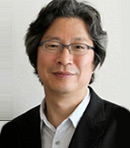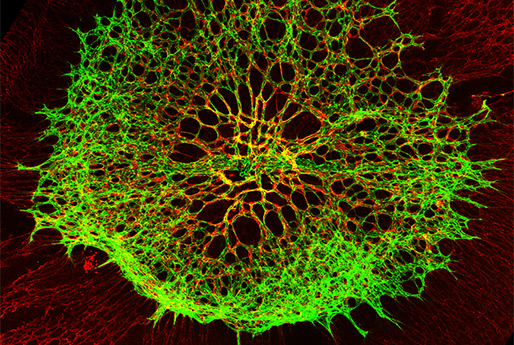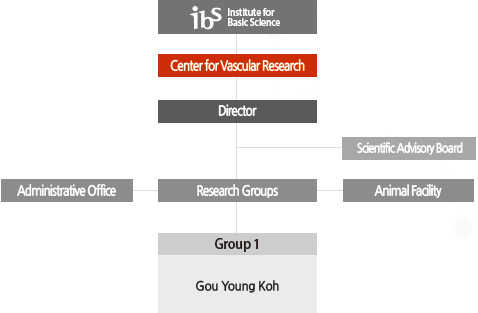주메뉴
- About IBS 연구원소개
-
Research Centers
연구단소개
- Research Outcomes
- Mathematics
- Physics
- Center for Underground Physics
- Center for Theoretical Physics of the Universe (Particle Theory and Cosmology Group)
- Center for Theoretical Physics of the Universe (Cosmology, Gravity and Astroparticle Physics Group)
- Dark Matter Axion Group
- Center for Artificial Low Dimensional Electronic Systems
- Center for Theoretical Physics of Complex Systems
- Center for Quantum Nanoscience
- Center for Exotic Nuclear Studies
- Center for Van der Waals Quantum Solids
- Center for Relativistic Laser Science
- Chemistry
- Life Sciences
- Earth Science
- Interdisciplinary
- Center for Neuroscience Imaging Research (Neuro Technology Group)
- Center for Neuroscience Imaging Research (Cognitive and Computational Neuroscience Group)
- Center for Algorithmic and Robotized Synthesis
- Center for Nanomedicine
- Center for Biomolecular and Cellular Structure
- Center for 2D Quantum Heterostructures
- Institutes
- Korea Virus Research Institute
- News Center 뉴스 센터
- Career 인재초빙
- Living in Korea IBS School-UST
- IBS School 윤리경영


주메뉴
- About IBS
-
Research Centers
- Research Outcomes
- Mathematics
- Physics
- Center for Underground Physics
- Center for Theoretical Physics of the Universe (Particle Theory and Cosmology Group)
- Center for Theoretical Physics of the Universe (Cosmology, Gravity and Astroparticle Physics Group)
- Dark Matter Axion Group
- Center for Artificial Low Dimensional Electronic Systems
- Center for Theoretical Physics of Complex Systems
- Center for Quantum Nanoscience
- Center for Exotic Nuclear Studies
- Center for Van der Waals Quantum Solids
- Center for Relativistic Laser Science
- Chemistry
- Life Sciences
- Earth Science
- Interdisciplinary
- Center for Neuroscience Imaging Research (Neuro Technology Group)
- Center for Neuroscience Imaging Research (Cognitive and Computational Neuroscience Group)
- Center for Algorithmic and Robotized Synthesis
- Center for Nanomedicine
- Center for Biomolecular and Cellular Structure
- Center for 2D Quantum Heterostructures
- Institutes
- Korea Virus Research Institute
- News Center
- Career
- Living in Korea
- IBS School
Research Centers
- Research Outcomes
- Mathematics
- Physics
- Center for Underground Physics
- Center for Theoretical Physics of the Universe (Particle Theory and Cosmology Group)
- Center for Theoretical Physics of the Universe (Cosmology, Gravity and Astroparticle Physics Group)
- Dark Matter Axion Group
- Center for Artificial Low Dimensional Electronic Systems
- Center for Theoretical Physics of Complex Systems
- Center for Quantum Nanoscience
- Center for Exotic Nuclear Studies
- Center for Van der Waals Quantum Solids
- Center for Relativistic Laser Science
- Chemistry
- Life Sciences
- Earth Science
- Interdisciplinary
- Center for Neuroscience Imaging Research (Neuro Technology Group)
- Center for Neuroscience Imaging Research (Cognitive and Computational Neuroscience Group)
- Center for Algorithmic and Robotized Synthesis
- Center for Nanomedicine
- Center for Biomolecular and Cellular Structure
- Center for 2D Quantum Heterostructures
- Institutes
- Korea Virus Research Institute
Searching for cures for vascular diseases through deep probing research
Tel. +82-42-350-5638
Fax. +82-42-350-4251
IBS Center for Vascular Research
BMRC(E7), KAIST, 291, Daehak-ro, Yuseong-gu, Daejeon, South Korea
Director

Director KOH Gou Young
Professor KOH is the director of the Center for Vascular Research, established in July, 2015. Professor KOH received his medical degree from Chonbuk National University College of Medicine. He worked as an Associate Professor at Pohang University of Technology from 2003-2010 before becoming a Distinguished Professor at KAIST in 2011. In the same year Professor KOH became a member of the BLOOD editorial board. In 2015, Doctor KOH became the director of the 25th center at IBS.
Introduction

Making a breakthrough in treating intractable vascular diseases such as tumors through vascular research
- - Conducting challenging and pioneering research in vascular and cardiovascular biology
- - Investigating the formation, integrity and pathogenic role of blood and lymphatic vessels
- - Performing efficient myocardial regeneration research by developing technologies to generate and differentiate cardiac stem cells
Main research activities
Endothelial cells (ECs) constitute the inner lining of blood and lymphatic vessels as monolayers and play essential roles in regulating and maintaining the viability of all organs in the human body. The shape and response of ECs differ depending on the organ, location, situation, and stimuli. This diversity and heterogeneity of ECs have been a long-standing interest, because such characteristics are essential in displaying and maintaining diverse functions of different organs and tissues. Despite the significant conceptual advances we have already achieved, a large portion of the characteristics remains to be elucidated to further our understanding of the diversity and heterogeneity of ECs at the molecular level.
Our ultimate goal is to make ground-breaking discoveries, conceptual advances and paradigm shifts in vascular biology through basic and fundamental research. In particular, we will focus on further understanding of "organotypic" EC heterogeneity, angiogenesis, lymphangiogenesis, cardiogenesis, vascular remodeling, and vascular niche with the integration of biomedical science and innovative technology. We will aim to 1) identify novel key regulators and clarify their mechanisms in organotypic endothelial cell heterogeneity, angiogenesis, and vascular remodeling and regeneration, 2) identify novel key regulators and clarify their mechanisms in the interaction between endothelial cells and pericytes, 3) unveil the critical roles of key molecules in organotypic lymphangiogenesis, lymphatic remodeling, and lymphatic functions in the extra- and intra-nodal tissues, 4) identify cardioblasts and clarify their characteristics and effective applications for cardiac regeneration, and 5) undertake creative approaches and develop innovative methods for angiogenesis, lymphangiogenesis, vascular remodeling, and cardiogenesis.
To do so, we will use not only our currently established methods, technologies, reagents and experimental animals, but we will also set up several core facilities for the generation of genetically modified mice, advanced imaging technology, and gene, cell and tissue analyses. Moreover, we will combine and fuse aspects of biomedical sciences and engineering via multi-faceted and multidisciplinary approaches to implement high-quality, creative ideas and take on innovative challenges. Successful achievement of these aims will not only shed light on unexplored paths to understand the regulations of cardiovascular functions in an organ-specific manner, but also enable us to develop new drugs and stem cells to treat cardiovascular diseases, including cancer, diabetic vasculopathy and ischemic heart diseases, as translational medicine.
Organization

Main research results
- Meningeal lymphatic vessels at the skull base drain cerebrospinal fluid
(Nature, 2019) - Tumor metastasis to lymph node requires YAP-dependent metabolic adaptation
(Science, 2019) - Organotypic vasculature: From descriptive heterogeneity to functional pathophysiology
(Science, 2017) - Normalization of Tumor Vessels by Tie2 Activation and Ang2 Inhibition Enhances Drug Delivery and Produces a Favorable Tumor Microenvironment.
(Cancer Cell, 2016) - Amelioration of Sepsis by Tie2 Activation-Induced Vascular Protection
(Science Translational Medicine, 2016)
Personnel
| Total | 32 |
|---|---|
| Gender | 22(Male), 10(Female) |
| Korean/ International | 28(Korean), 4(International) |
Degree
Position
As of October. 2019
- Content Manager
- Center for Vascular Research : Bae Jeom Il 042-350-4272
- Last Update 2025-05-14 10:54












